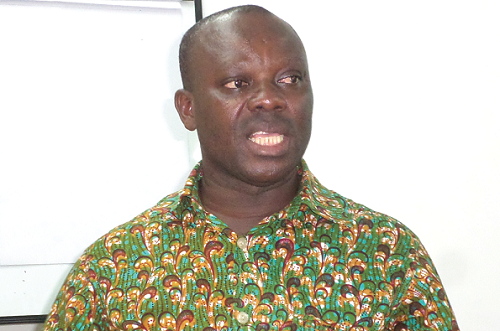The Chief Executive Officer (CEO) of the Chamber of Pharmacy Ghana, Mr Anthony Ameka, has called on the Food and Drugs Authority (FDA) to reduce the registration fees for locally made pharmaceutical products.
According to him, the registration fees for some medicines were as high as $3,600, while inspection fees sometimes cost $20,000, making Ghana one of the most expensive countries in Africa to operate a pharmaceutical business.
At a seminar on taxation in Accra, Mr Ameka explained that the effects of the high registration fees were the inability to present new products for registration and evading re-registration when the product’s permit periods expired.
He also identified the shortage of drugs on the market, the proliferation of unsolicited, unregistered, fake or substandard products through the country’s porous borders and the low compliance level in the industry as the effects of high cost of registration fees in Ghana.
“The $3,600 charged by Ghana for a three-year period is relatively very high which may severely impede our objective to have all products registered.”
Meanwhile, we receive our income in the local currency, therefore, considering the last four years alone, the fees have increased by 2.5 times due to exchange rate variances,” he stated.
Some examples
Comparing the registration and re-registration fees for allopathic medicines in Ghana and some selected countries, Mr Ameka pointed out that while the industry paid $3,600 for three years, Nigeria charged $750 for five years, Kenyans paid $1,000 for a lifetime with $300 as retention fee, Uganda $1,250 for a lifetime and $500 for retention fee.
The low fees for registration and retention (re-registration) was not different in Cote d’Ivoire, South Africa, Mauritius and Madagascar.
Mr Ameka appealed to the FDA to extend the duration upon which the charges were made, recommending that all fees should be charged in the local currency.
“This will ensure stability in the fees and the prices of medicines on the market, thus increasing access to medicines by the ordinary Ghanaian,” he said.
Tax
For his part, a Chief Revenue Officer of GRA, Mr Joseph Fiadzo, explained the various changes that had taken place in the taxation legal framework, saying, for instance, that the Value Added Tax 2013 (Act 870) had replaced the VAT Act, 1998 (Act 546).
He said VAT was a tax imposed on consumption expenditure, including buying of goods and payment for services.
The new VAT Act had also increased the standard VAT rate from 12.5 per cent to 15 per cent, Mr Fiadzo said.

